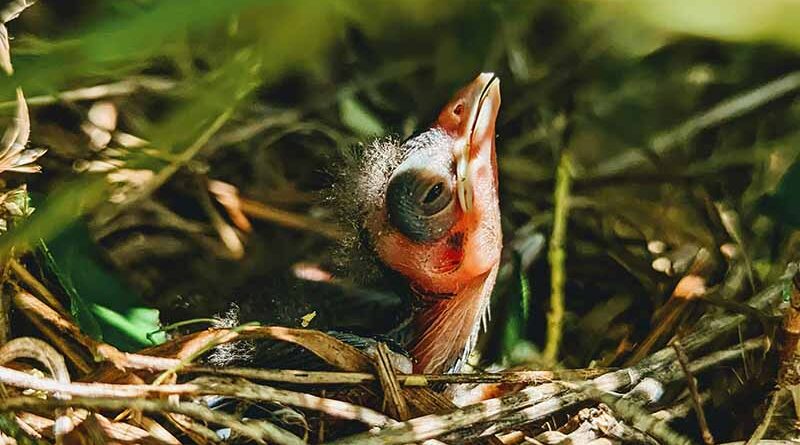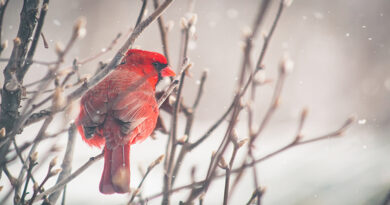What To Do When You Find A Baby Bird
Bird Friendly Peterborough
As summer progresses and first and second clutches of baby birds continue, this is a good time for some reminders about when baby birds need help, and when they need to be left alone! No bird-napping please!
When a member of the public comes across a baby bird on the ground, sometimes, they worry that it has been abandoned and collect the baby bird. Seeing baby birds on the ground can be alarming to us; they look helpless and not where they “should be”. Most of the time however, this is perfectly normal as they are fully feathered fledglings, and after leaving the nest can spend several days or even weeks on the ground. They are not abandoned! During this time, they are still watched over by mom and dad, fed, and protected. This is the time where they are learning the essential survival skills of hiding, stealth, and ground foraging; necessary skills for their future success.
If you see a baby bird on the ground, always watch from a distance (preferably from indoors if possible) and you will probably see parents feeding and caring for their young. Here is what to look for featuring one of our most abundant and remarkable birds, the American Robin.
• Eyes open and fully feathered, hopping and attempting to fly: leave it alone! This is a fledgling and it is perfectly natural for this life stage. Robin fledglings can spend up days on the ground being cared for by their parents.
• Eyes open but feathers have not grown in. This is the nestling stage and occasionally though, baby birds fall out of the nest in a storm or accident or are scared out of the nest too early in something called a “force fledge”, where the baby is able to flutter enough just to get out of the nest in its fear, but is too young to be on the ground. If there is no injury and you can safely return to the nest, wear gloves and do so. If not, contact an Authorized Wildlife Custodian for guidance.
• Eyes closed and naked without many feathers. This is the hatchling stage and these babies are very vulnerable. If there is no injury and you can safely return to the nest, wear gloves and do so. If not, contact an Authorized Wildlife Custodian for guidance.
There are still some unfortunate cases where a member of the public will collect an “abandoned” baby bird and attempt to raise it into an adult for release. While usually done with good intentions, it is not a substitute for natural bird parenting and is also illegal in Ontario to keep any wild animal in your possession.
Birds raised or cared for by untrained members of the public very often have poor outcomes, very rarely make it to release, and find very little success in the wild after release as they need such specialized foods that their parents give them (not to mention many baby birds must be fed every 15-20 minutes for 12 hours a day!).
As summer winds down, it is important to acknowledge that these baby birds are growing, learning, and preparing for fall migration. Make sure you keep your distance and your eyes open!




